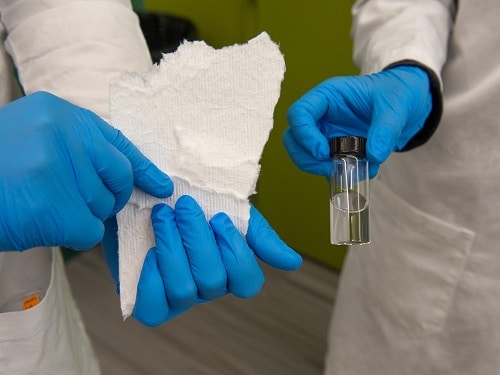The extraction process of rare earth elements from e-waste using sustainable nanotechnology is fast and safe

Due to increasing industrial demands for neodymium, a rare earth metal used for creating magnets in motors for electronic devices, attention has turned towards recycling electronic waste (e-waste) including discarded computers and printed circuit boards.
This is a good move as it not only helps in recycling e-waste but also counters the scarce natural availability of neodymium.
But separating valuable elements from other minerals and components found in e-waste is a challenge. Current rare earth element recycling processes are environmentally detrimental due to use of highly acidic chemicals to extract the elements.
So researchers from Penn State University have now come up with a method that uses nanotechnology to separate neodymium found in paper, cotton and pulp.
In the process, cellulose nanoparticles derived from cellulose fibrils bind selectively to neodymium ions, separating them from other ions, such as iron, calcium and sodium. This was achieved by negatively charging the nanoparticles to attract the positively charged neodymium ions.
“The process is effective in its removal capacity, selectivity and in its speed,” said Amir Sheikhi, assistant professor of chemical engineering and biomedical engineering at Penn State University. “It can separate neodymium in seconds by selectively removing the element from some of the tested impurities.”
According to him, the process is also sustainable, cost-effective and environmentally friendly due to the use of cellulose while minimising the harmful impacts resulting from open-pit mining.
In the future, the research team aims to implement a cellulose-based adsorption process for the extraction of rare earth elements like neodymium from industrial wastewater, mining tails and unused permanent magnets.
“This contribution to rare earth recycling will have a strategic and economically-viable impact on several industries,” Sheikhi said. “The more neodymium we recycle, the more we can manufacture electric and hybrid vehicles and wind turbines, leading to less strain on the environment.”
For detailed information, read here






